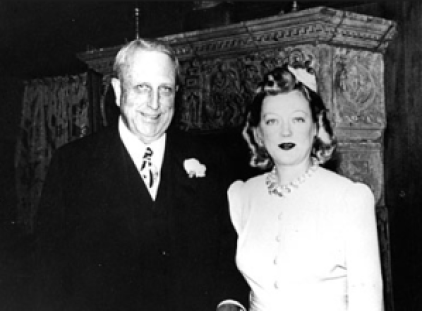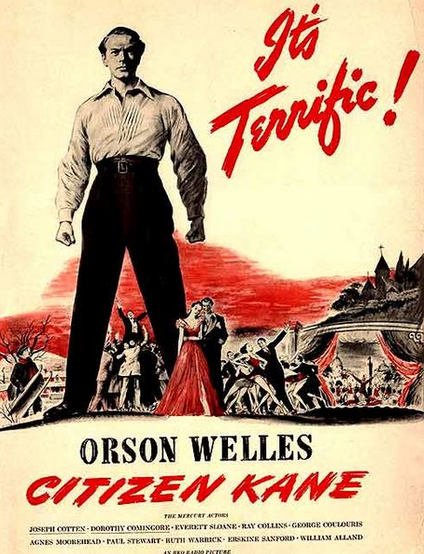Citizen Kane, consistently regarded as one of the best pieces of American cinema ever made, may be intended as an homage to William Randolph Hearst–even though it’s anything but. Hearst, notorious for his ruthless, cutthroat nature, is reduced to a middling, sniveling husk in his Rosebud-obsessed portrayal by Orson Welles.

In the role of Charles Foster Kane, Welles irritatingly does his best to imbue his version of Hearst with some level of humanity. In reality, the real Hearst was even more ball-busting and odious. In 1887, Hearst fell into a position that would lead to his magnate status when he took possession of The San Francisco Examiner. Furthering his non-likability factor, Hearst merely came into control of the paper because it belonged to his father, who had received it as repayment for a gambling debt.
http://www.youtube.com/watch?v=zyv19bg0scg
Poaching writers and cartoonists right and left to build on his ever expanding empire, Hearst showed a level of mercilessness utterly lacking in Kane. Of course, it’s likely that the entire reason for the semi-softening of Hearst for his onscreen incarnation was to make him more palatable for a moviegoing audience.

Annoyingly, Kane is represented as having grown up in utter poverty in Colorado, while Hearst enjoyed an affluent background in San Francisco. This, undoubtedly, is yet another tactic for gaining audience sympathy. Harvard-educated, Hearst’s mouth contained a silver spoon from the get-go, which is, in part, what may have led him to act so lawlessly in his conduct–particularly with regard to the distortion of news events in order to sell more papers.

Based on all of the divergent characteristics between Kane and Hearst, it’s an insult to the ferocity of a man who would have balked at Kane’s brand of “unfeelingness.”






















[…] Upon receiving an offer to write a gossip column, Hopper readily accepted. She quickly became notorious not just for her juicy so-called insight into Hollywood, but also for her rivalry with Louella Parsons, a beloved movie columnist employed by William Randolph Hearst. […]